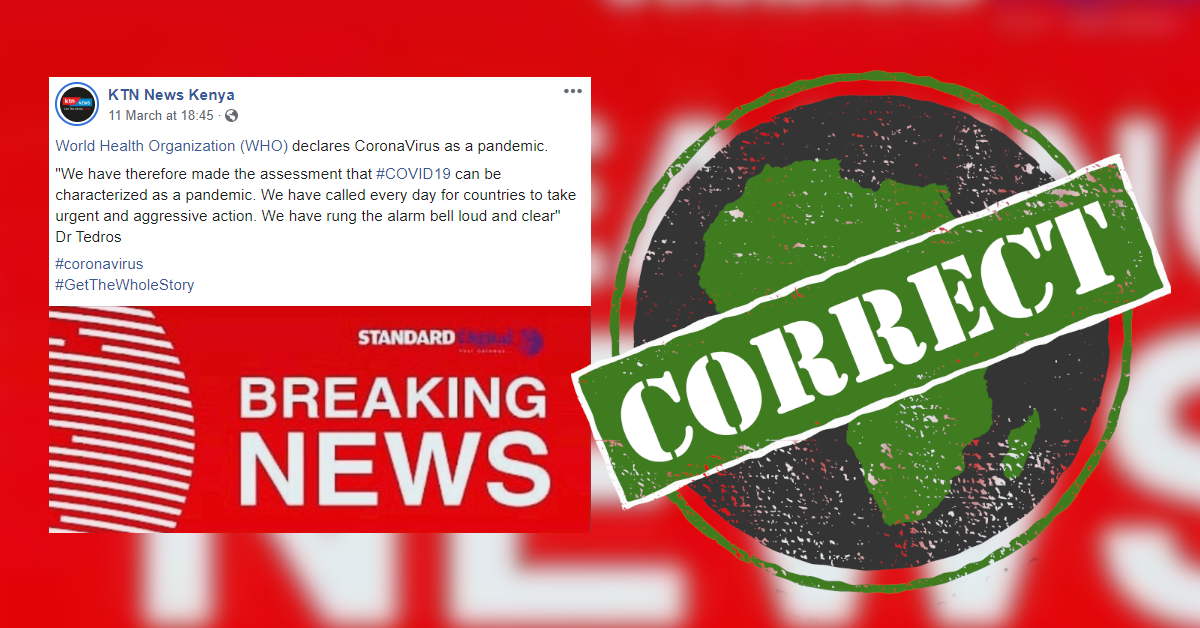| Are you looking for accurate information on the novel coronavirus pandemic? We've put all our fact-checks in one place. Read our Live Guide. |
“World Health Organization (WHO) declares CoronaVirus as a pandemic,” reads an 11 March 2020 post on the Facebook page of KTN News, a Kenyan TV channel.
But the post was flagged as possibly false by Facebook’s fact-checking system.
According to Britannica, a pandemic is an “outbreak of infectious disease that occurs over a wide geographical area” that affects a “significant proportion of the world’s population, usually over the course of several months”. Pandemics “arise from epidemics, which are outbreaks of disease confined to one part of the world, such as a single country”.
The new coronavirus, identified in December 2019, has so far infected more than 218,000 people across the world. Nearly 9,000 people have died from Covid-19, the disease it causes, but close on 85,000 have recovered.
New information about the outbreak is emerging every day. But have enough people been infected for the WHO to label it a pandemic?

Covid-19 declared pandemic on 11 March
In a media briefing on 11 March, WHO director general Dr Tedros Adhanom Ghebreyesus said the agency had “made the assessment that Covid-19 can be characterised as a pandemic”.
Tedros added: “Describing the situation as a pandemic does not change WHO’s assessment of the threat posed by this virus. It doesn’t change what WHO is doing, and it doesn’t change what countries should do. We have never before seen a pandemic sparked by a coronavirus. This is the first pandemic caused by a coronavirus.”
The last disease declared a pandemic by the WHO was the H1N1 influenza virus, also known as swine flu, which killed more than 18,000 people in more than 214 countries and territories in 2009 and 2010. – Grace Gichuhi
Republish our content for free
For publishers: what to do if your post is rated false
A fact-checker has rated your Facebook or Instagram post as “false”, “altered”, “partly false” or “missing context”. This could have serious consequences. What do you do?
Click on our guide for the steps you should follow.
Publishers guideAfrica Check teams up with Facebook
Africa Check is a partner in Meta's third-party fact-checking programme to help stop the spread of false information on social media.
The content we rate as “false” will be downgraded on Facebook and Instagram. This means fewer people will see it.
You can also help identify false information on Facebook. This guide explains how.


Add new comment